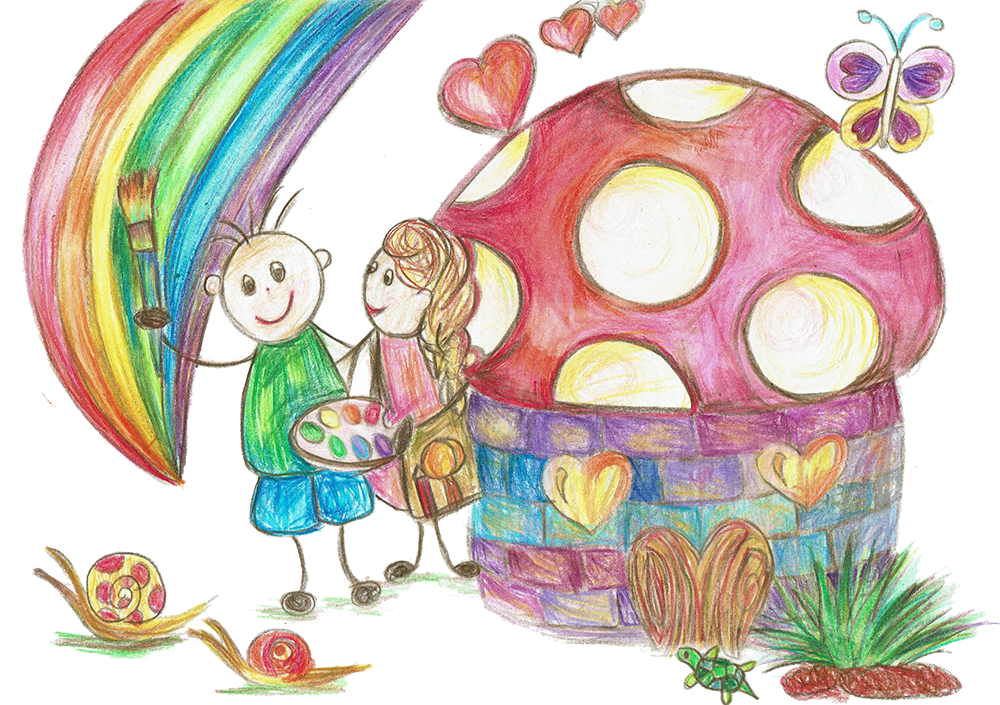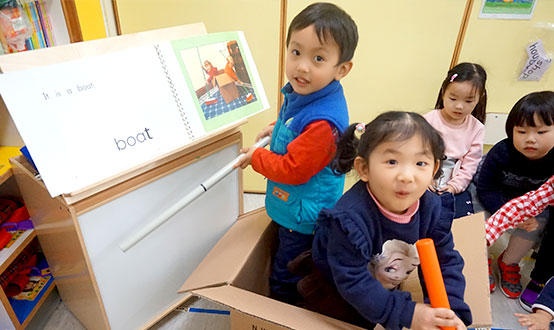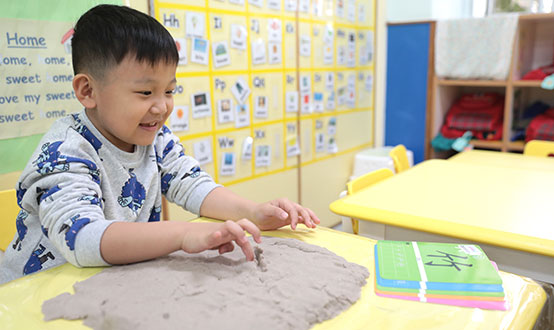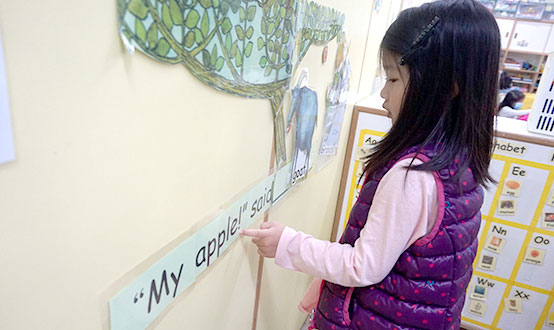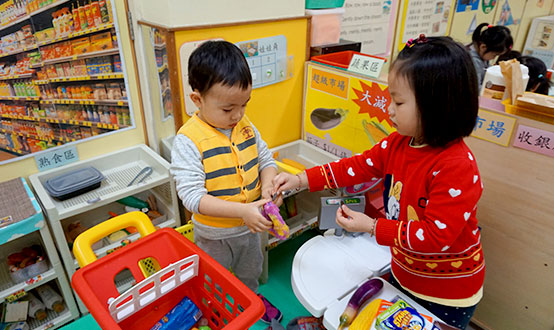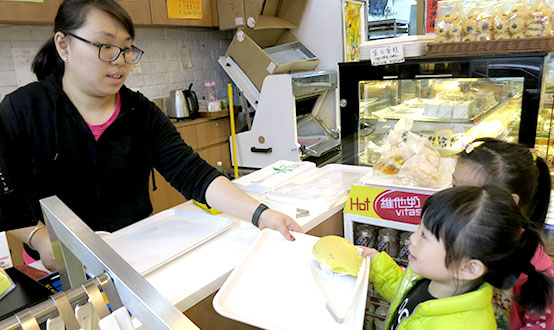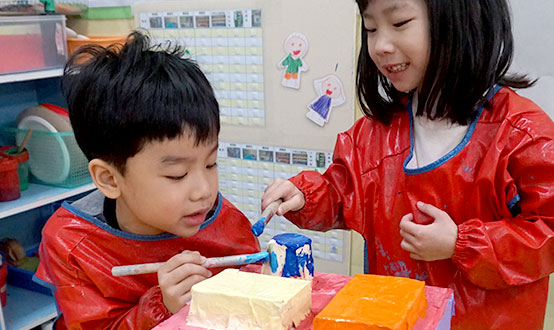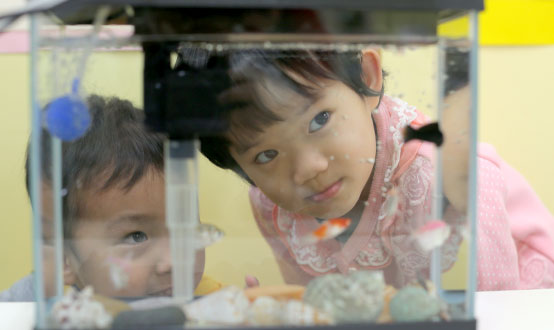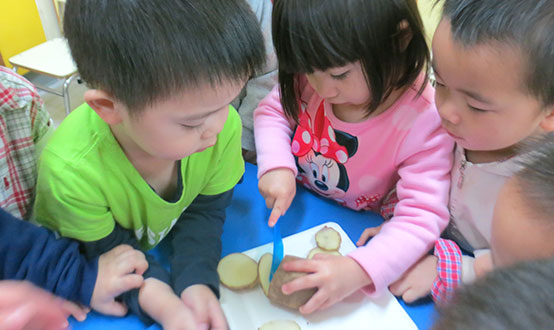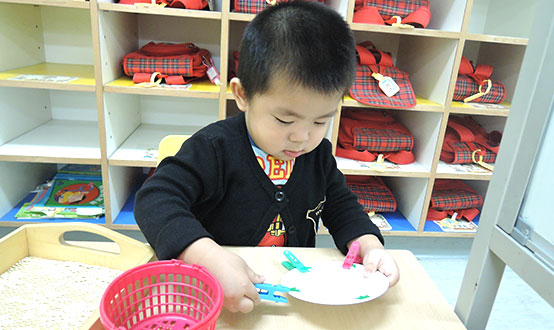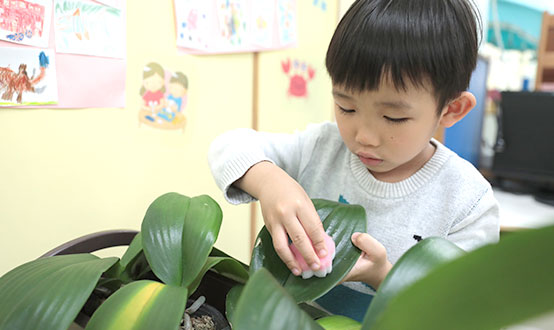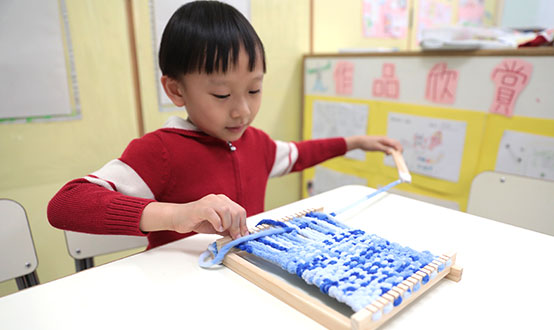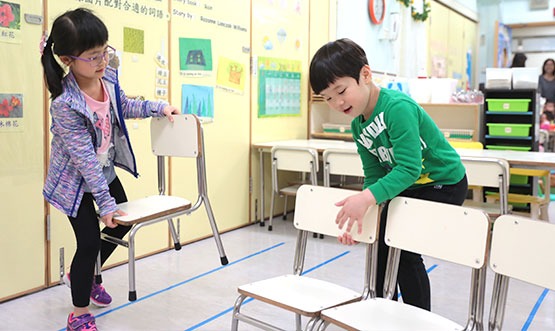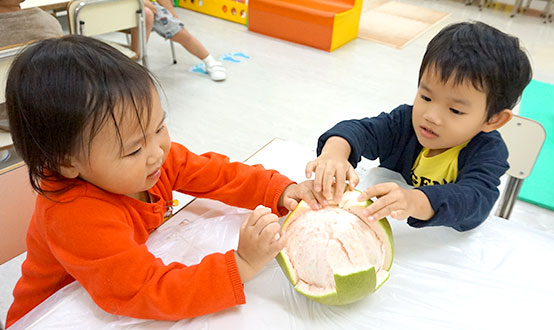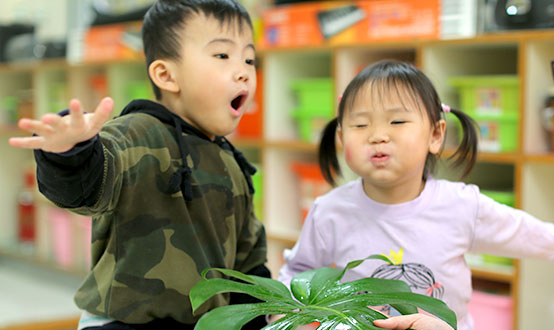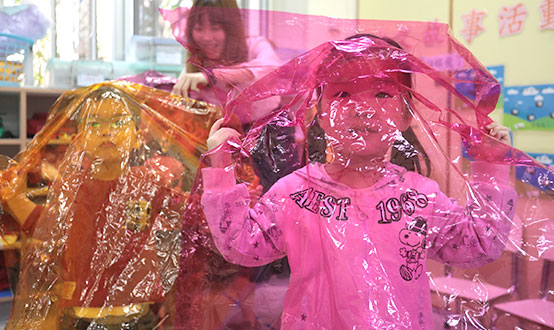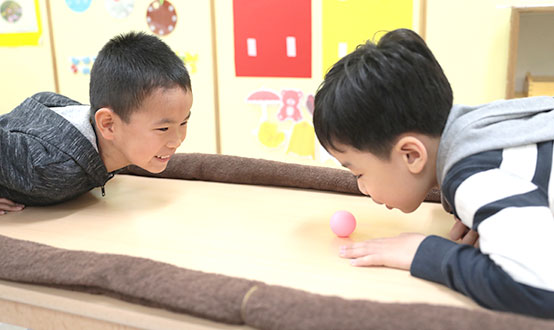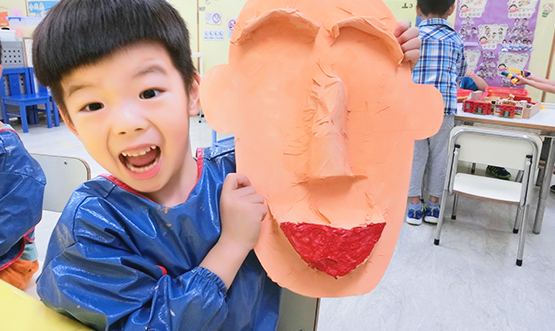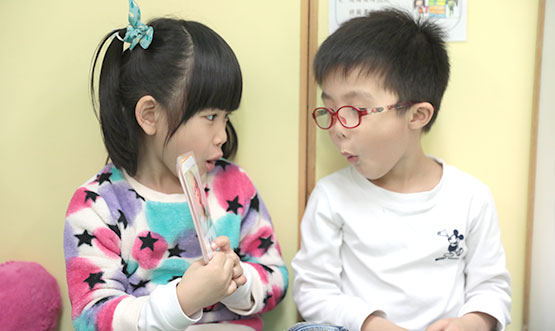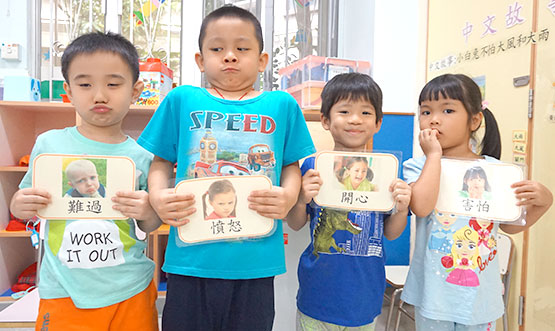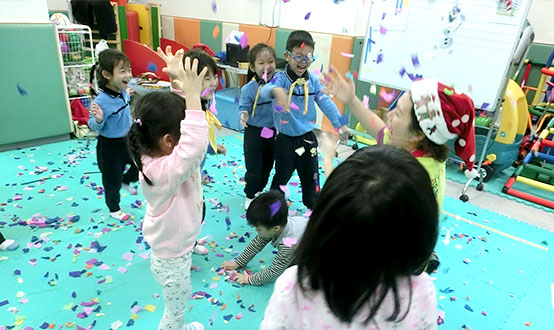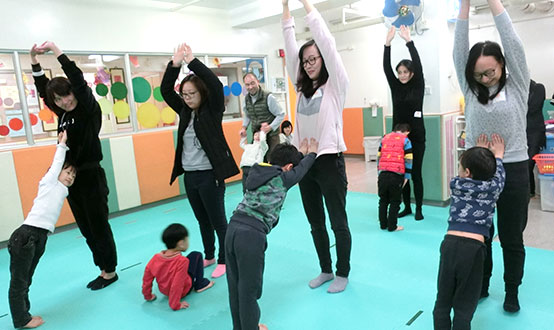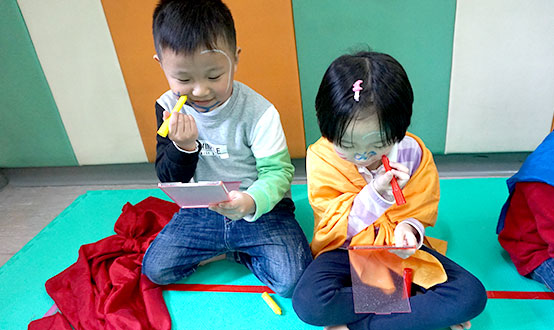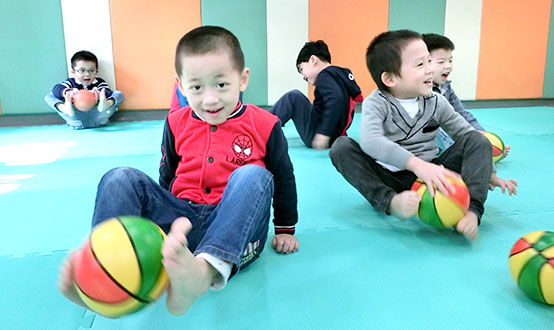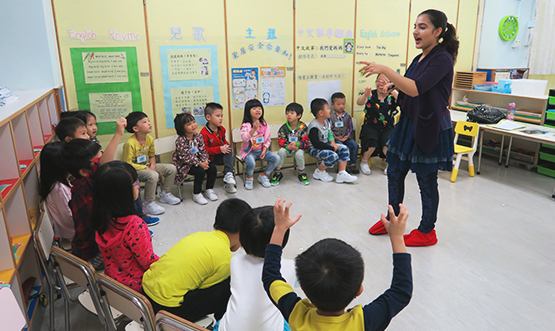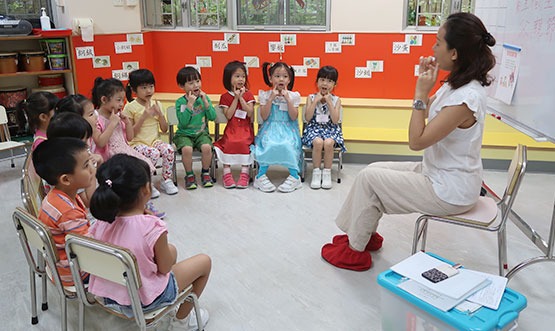Curriculum
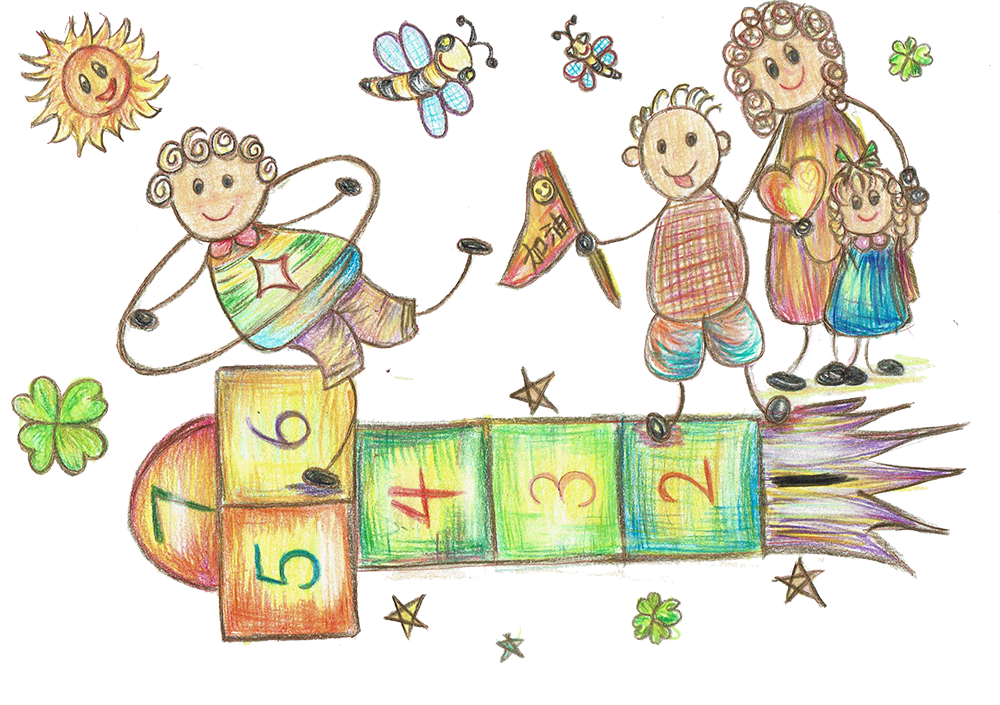
The school adopts an activity-based approach and focuses on the needs of children, thus allowing them to learn from games, stories, whole language learning, project, moral education and a systematic exploration of body in the 'Leap!' programme. This is to promote comprehensive and balanced development in children as well as their proactive attitudes and independence in learning. Their learning interests will also be elevated through different activities, such as singing, nursery rhymes, storytelling, games, snacking and outdoor visits.
Whole language teaching
Using a story-based approach, thematic storybooks, whole language learning and various activities, the programme focuses on the children's own experiences and interests and helps develop their learning motivations, interests and abilities.
Project-Exploring Teaching Approach
The school advocates activities founded upon the experiences and interests of young children that help them explore, observe, study and establish solutions via thematic learning. Moreover, learning methods such as visits, interviews, discussions and experiments will also be employed in order to cultivate learning interest, critical thinking and interpersonal skills, thus unlocking children's full learning potential and striking a balance between the five aspects of development, i.e. moral, intellectual, physical, social and aesthetic.
Practical Life Training
The Montessori Teaching Philosophy stresses that the hand and brain must develop in harmony through interaction, thus generating positive psychological effects and self-directed learning in young children.
The school environment is designed to allow young children to engage with different teaching aids and partake in various tasks, so as to establish their initiatives and abilities to take care of themselves, others and their surroundings, whilst nurturing their perseverance and activating their potential.
Perceptual Motor Activities
The school believes that young children enjoy learning through their limbs and five senses – a method which helps them develop cognitively, physically and mentally. In lessons, children are encouraged to carry out activities by using different senses, whereas the "Perception Motor Parenting Home Activities Kit" allows young children to build a foundation for independence and their abilities in reading, writing and arithmetic. This, combined with parental involvement, further facilitates learning interest and parent-child relationships.
Moral Education
The school understands the importance of young children's emotional development. In fact, it has been implementing early childhood emotional intelligence courses since 2000 as a way of creating an environment where children feel loved and respected, and are able to cultivate their emotional health. Under the teachers' guidance, children are able to explore different emotions to experience the various aspects of life, harness their emotions, establish a positive self-image, develop their confidence in learning, and understand the needs of different communities.
Enrichment course
"Leap!" Body Education Programme
"Leap!" is the first-ever, one and only large-scale body education programme for children in Hong Kong. Based on the "LifePulse" curriculum created by Taiwan's Cloud Gate Dance Theatre with four decades of excellence in the art of dance with major contributions from a team of experts in music, child education and psychology, "Leap!" maximizes the potential of human body as a vehicle to inspire our next generation to gain self-confidence, develop interpersonal skills, and showcase creativity when they communicate and collaborate with their peers.
Language Enrichment Programme
The school has recruited foreign and mandarin teachers, who, through the use of different activities such as stories, nursery rhymes and drawing, allow children to converse naturally in English and in Mandarin, thus raising their interest and abilities in their second language.
